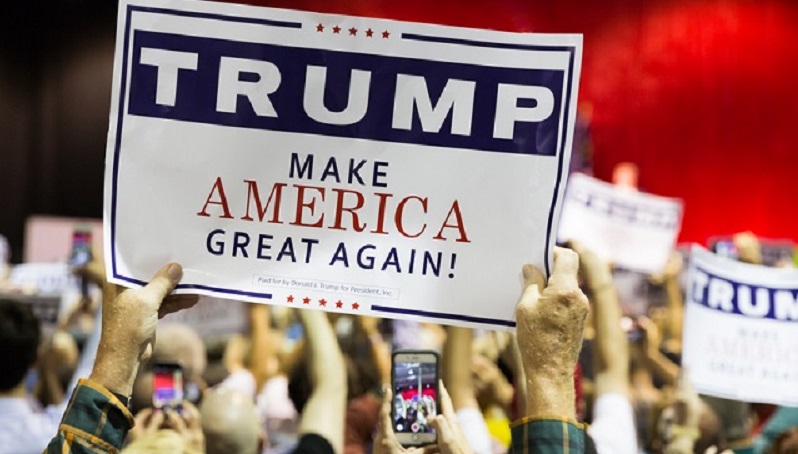The announcement saw the S&P 500 fall 1.3% on fears of a global trade war.
Centtrip chief market analyst Miles Eakers describes Trump’s tariff as “how to trigger stocks sell-off”.
The import duties are set at 25% on steel and 10% on aluminium and follows investigations by the US Department of Commerce that have been taking place since April last year.
The Department of Commerce argues the imports threaten US national security due to military requirements for the metals, but the European Commission has already hit out at the claims, saying instead the measures are intended to protect US industry.
Tilney managing director Jason Hollands said Trump campaigned to introduce tariffs to stop what he regarded as unfair trade practices by China, but the policy announced this week appeared to impact all producers – including the UK.
“The US is the biggest steel importer in the globe with Canada the biggest supplier followed by Brazil, South Korea, Mexico and Russia. Trump is facing calls to at least target these tariffs more narrowly.”
Hollands said a potential trade war “punches a big hole” through the positive outlook for the global economy, which has underpinned markets already skittish about rising inflation and tightening monetary policy.
Interactive Investor head of equities Lee Wild told International Adviser the potential for a trade war to negatively impact global growth is “very real”. “Without more detail it’s difficult to predict how this pans out.”
Chelsea Financial Services managing director Darius McDermott said industry-heavy funds and indices are likely to be hardest hit by Thursday’s announcement.
He said Man GLG Japan Core Alpha, which Chelsea holds, “will be having a bad day”. The fund’s largest holding is Toyota and it also has a large position in Nippon Steel, which was down 4%.
Watch out for inflation
The tariffs have impacts on inflation, interest rates and the US dollar, said AJ Bell investment director Russ Mould.
He said there is a danger that the price of imported goods goes up, nudging inflation higher. “Car makers and construction firms will be watching nervously, as will would-be buyers of cars and property developers to name a few.”
Inflation has flow-on effects for the US Federal Reserve, which is already pushing for at least three interest rate hikes in 2018 and reducing quantitative easing.
Finally, a reduction in the US trade deficit would bolster the greenback, in a setback for global markets, as fewer dollars are exchanged for overseas goods.
Mould said the impact of a strong dollar would be particularly bad for emerging markets as it increases the cost of servicing their dollar-denominated debt and makes dollar-priced commodities more expensive in local currency terms.





